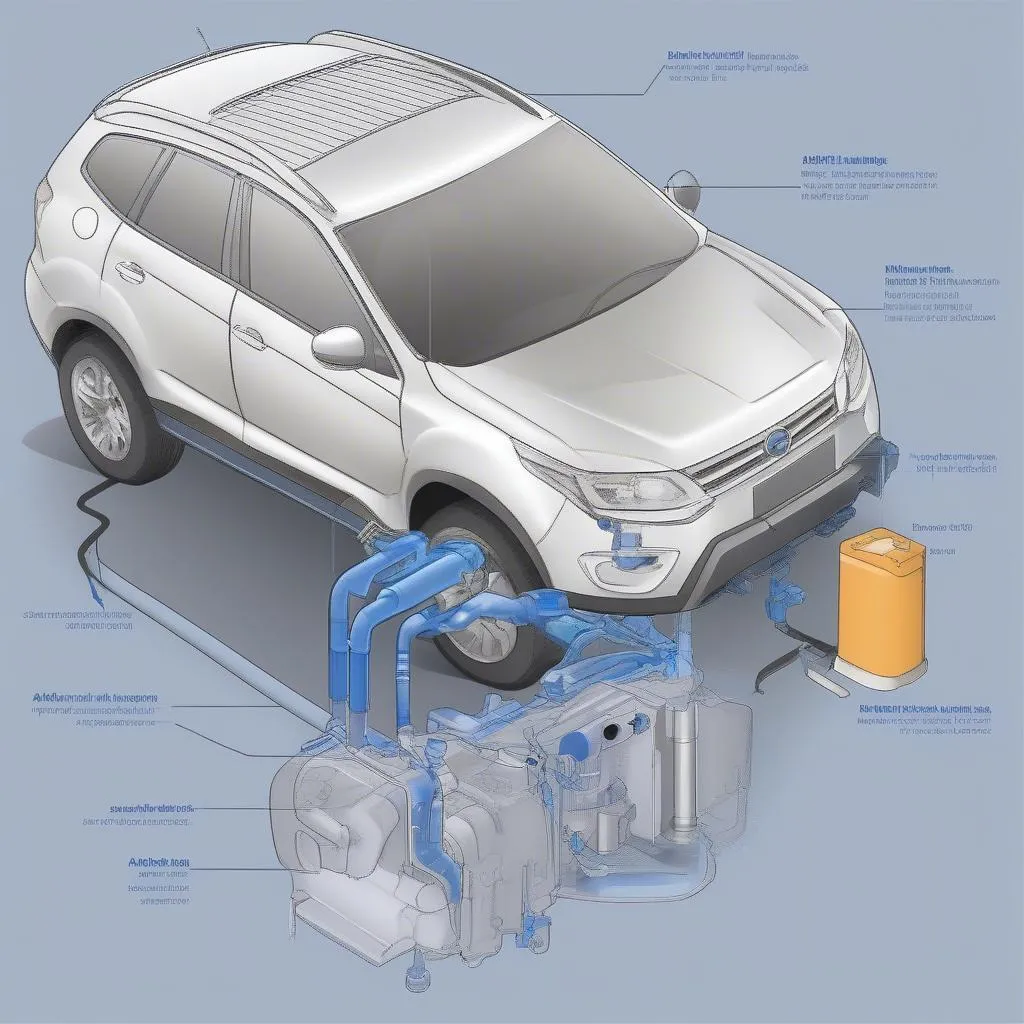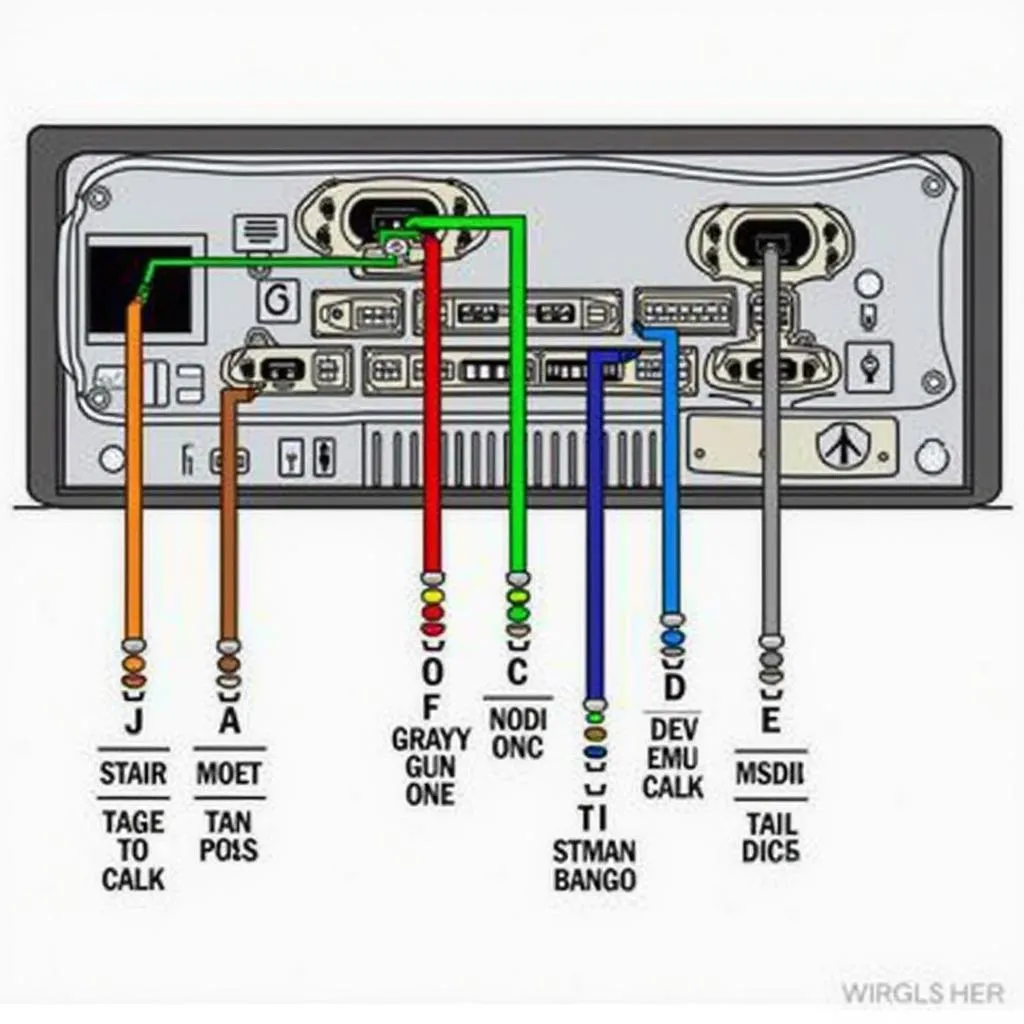That grinding sound coming from your brakes is not something to ignore. It’s your car’s way of telling you it’s time for new brake pads. This article will delve into the causes, implications, and solutions for brake pad wear warning noise.
What Does That Annoying Screeching Noise Mean?
The telltale screeching, grinding, or squealing sound emanating from your brakes is a clear indicator of worn-out brake pads. Modern vehicles are often equipped with a small metal indicator, known as a wear indicator, attached to the brake pad. When the friction material of the pad wears thin, this metal indicator comes into contact with the brake rotor, creating the high-pitched noise. It’s a built-in warning system designed to alert you before more serious damage occurs.
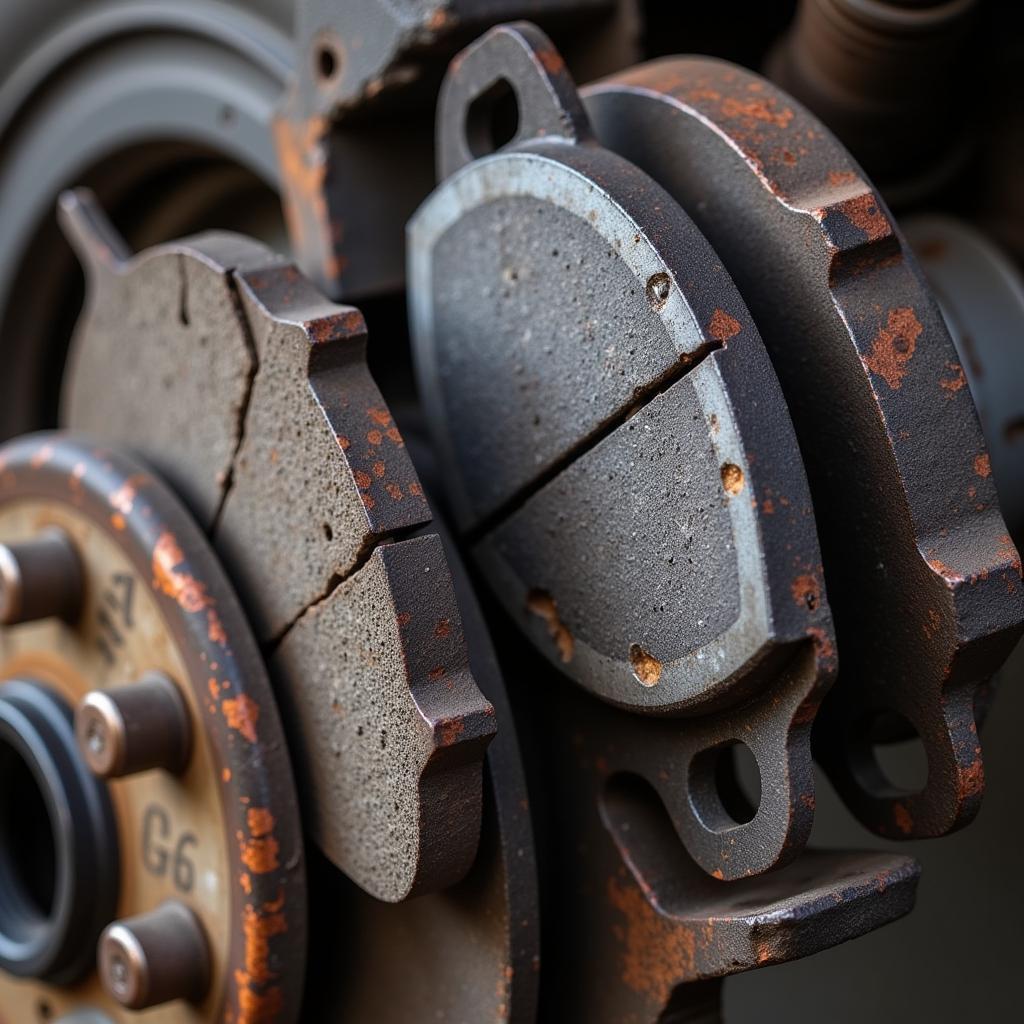 Worn Brake Pads with Indicator
Worn Brake Pads with Indicator
Why Are My Brakes Making Noise?
While the wear indicator is a common culprit, there are other potential causes for brake noise:
- Worn Brake Pads: This is the most common reason. As the friction material wears down, the metal backing plate can scrape against the rotor.
- Glazed Rotors: Excessive heat can cause a hardened layer to form on the rotor surface, leading to a squealing noise.
- Dirt and Debris: A small rock or debris lodged between the pad and rotor can create a grinding sound.
- Cheap Brake Pads: Low-quality brake pads may contain hard metals that squeal when braking.
Is It Safe to Drive with Brake Pad Wear Noise?
The short answer is no. Driving with worn brake pads is incredibly risky. Here’s why:
- Reduced Braking Efficiency: Worn pads reduce the friction needed to slow down or stop your vehicle, increasing your stopping distance.
- Rotor Damage: Driving with worn pads can severely damage the brake rotors, leading to costly repairs.
- Brake Failure: In extreme cases, completely worn brake pads can lead to brake failure, putting you and others in danger.
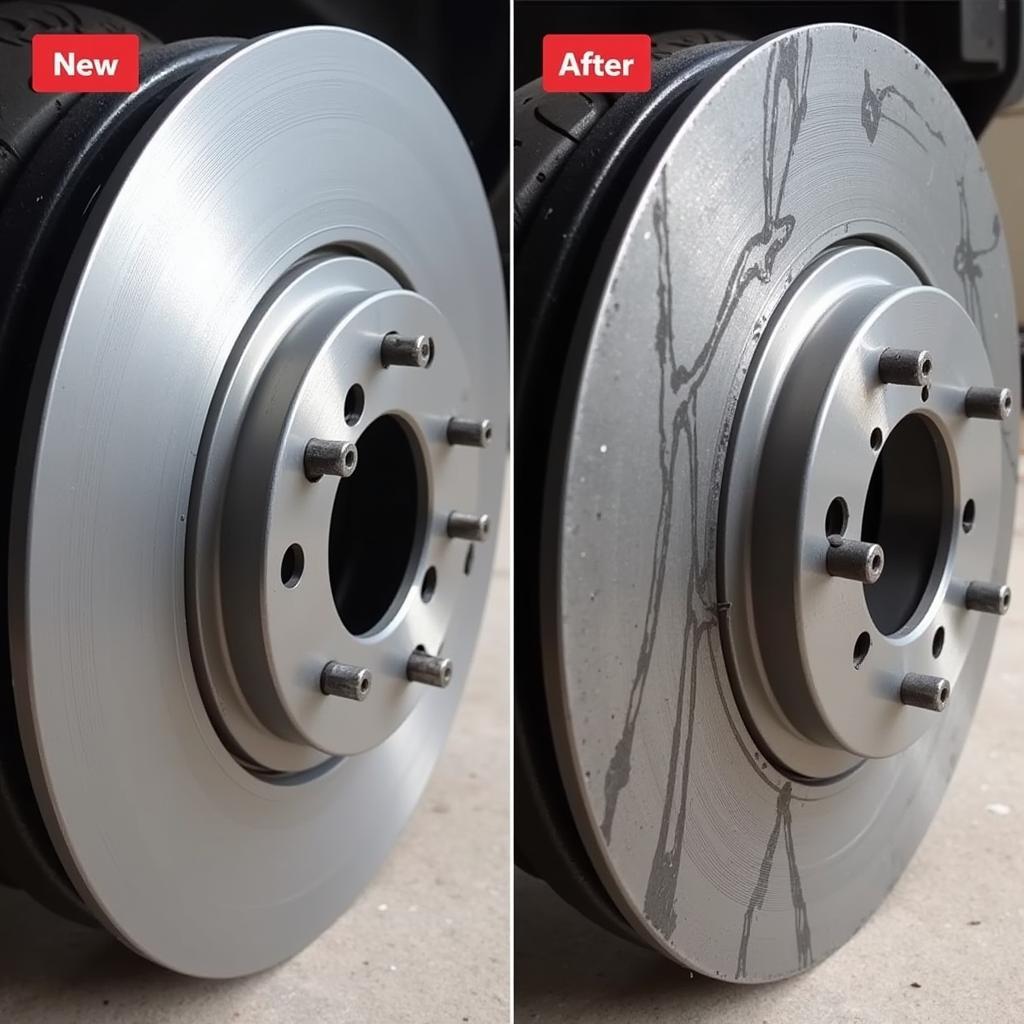 Brake Rotor Damage from Worn Pads
Brake Rotor Damage from Worn Pads
What Should I Do if I Hear Brake Pad Wear Noise?
If you notice any unusual noises coming from your brakes, it’s crucial to act quickly:
- Don’t Panic: Stay calm and avoid sudden braking maneuvers.
- Reduce Speed: Gradually decrease your speed and maintain a safe distance from other vehicles.
- Find a Safe Place to Stop: Pull over to a safe location as soon as possible.
- Inspect Your Brakes: If you’re comfortable, you can visually inspect your brakes for obvious signs of wear.
- Call a Mechanic: It’s best to contact a qualified mechanic to diagnose the issue and replace your brake pads if necessary.
Can I Replace My Brake Pads Myself?
While it’s possible to replace your brake pads yourself, it’s generally recommended to have a professional handle this repair. Brake systems are critical safety components, and even a small mistake can have serious consequences.
“Brake pad replacement might seem like a simple DIY project, but there are nuances specific to each car model. It’s always safer to trust a professional,” advises John Smith, a seasoned automotive technician at ABC Auto Repair.
How Much Does It Cost to Replace Brake Pads?
The cost of brake pad replacement can vary depending on factors like your car’s make and model, the type of brake pads you choose, and labor costs in your area. However, it’s a relatively affordable repair compared to the potential cost of more serious brake problems if ignored.
Preventing Premature Brake Pad Wear
Here are a few tips to help prolong the life of your brake pads:
- Avoid Hard Braking: Anticipate stops and coast to a stop whenever possible.
- Lighten Your Load: Carrying excess weight puts more strain on your brakes.
- Regular Brake Inspections: Have your brakes inspected by a qualified mechanic at least once a year or as recommended in your car’s owner’s manual.
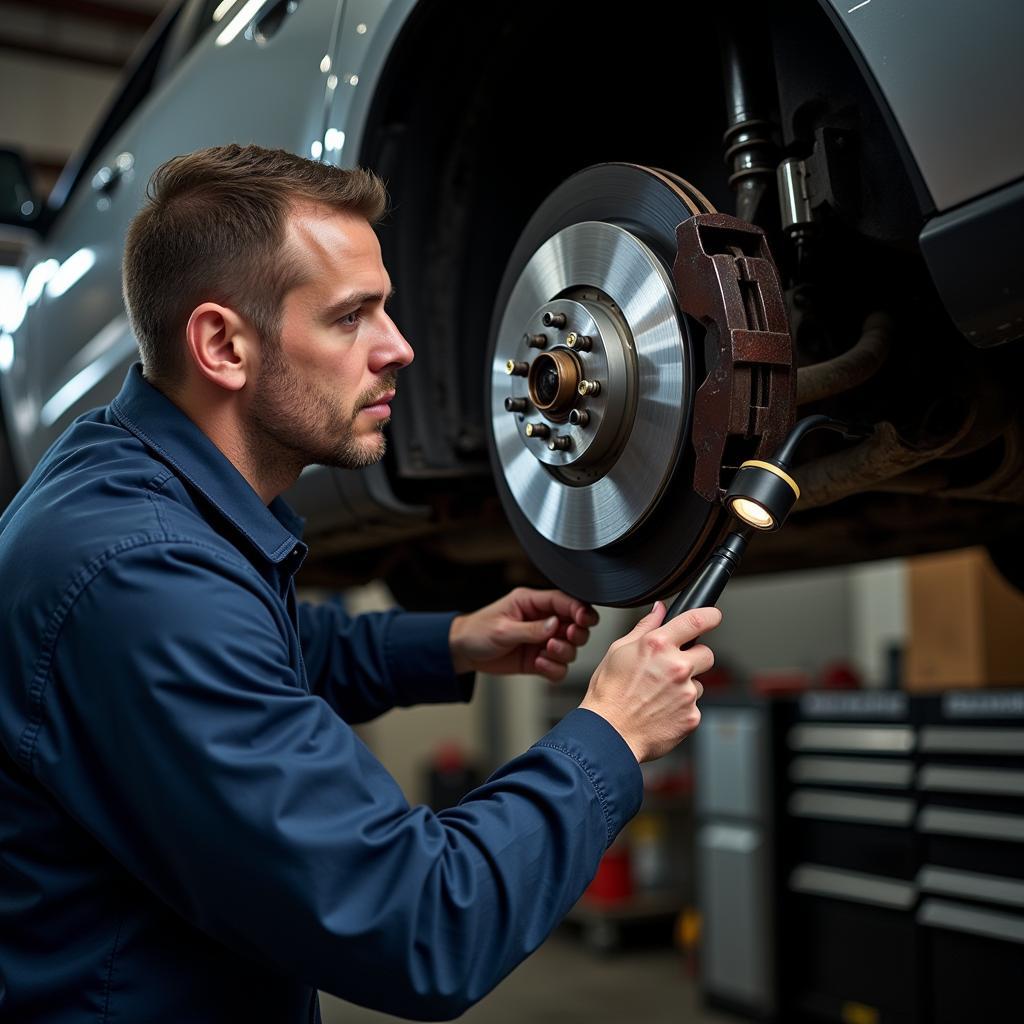 Mechanic Inspecting Car Brakes
Mechanic Inspecting Car Brakes
Conclusion
Ignoring brake pad wear warning noises can be costly and dangerous. Remember that regular maintenance and timely repairs are crucial for ensuring the optimal performance and safety of your vehicle. If you hear that telltale screeching sound, don’t hesitate to seek professional assistance. Your safety and that of others on the road depend on it.

